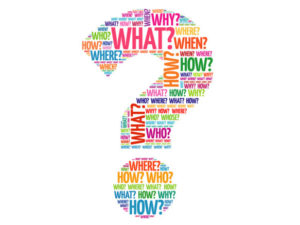At the UCWbL, we work with writers from a variety of different academic and professional disciplines. Yet, for the most part, when I talk to friends and fellow students about their perceptions of the writing center, they think of it as a resource for more thesis-driven essays and papers. Specifically, when I asked five of my friends the question, “What type of writing would you consider bringing into the writing center for help?,” they responded with “research papers,” ”essays for WRD classes,” and “short papers.”
This anecdotal account tells me that a substantial number of students don’t see the UCWbL as a resource for all kinds of writers. As a new tutor, I too was not aware of the array of assistance the writing center offered to students. After my first two weeks of shadowing peer tutors to learn the job, my perspective broadened as I watched my co-workers helping students with reviewing psychology studies, survey questionnaires, lab reports, and even a marketing proposal.
It became clear to me, that for both tutors and writers, no day at the UCWbL is ever the same. Therefore, I would encourage my classmates and friends to consider submitting their own writing, whatever genre it may be, for feedback. At its core, the UCWbL is a source of reflection that is meant to incite revision – a process each of us can benefit from. For example, as a public relations (PR) student aspiring to work in the wider communications and media sphere, I see room for those in my own field to incorporate reflection and revision into their work.
Below, I have made the case that all kinds of writers can benefit from visiting the UCWbL. Additionally, I use public relations as an example of what can be accomplished when writers and tutors collaborate.
The Need For Reflection and Revision in PR… and Elsewhere

In PR, we do a lot, and I mean a lot, of writing and publishing. The profession itself is rooted in the building of mutually beneficial relationships between organizations and various publics through strategic communication (PRSA). And in the modern era of a 24/7 information cycle, breaking through the crowd to get messages heard in a clear and meaningful way has become strenuous. There is less time to produce effective content and this leads to less time spent reviewing before publishing.
The outcome can be a messy one; with recent examples of PR blunders including the H&M “Coolest Monkey in the Jungle” Ad which featured an African American model, an Asian restaurant that thought it was a good idea to go by the name “Yellow Fever,” and Facebook’s clumsy crisis communications response to concerns about how the platform is harvesting user data for political purposes. The list goes on.

And what is the solution? You would think professionals that play such an influential role in the societal dialog should be reflective in order to prevent a crisis from occurring. Yet, this is not the case. According to an article about the absence of formal reflection in public relations, author Pip Mules points out that despite being excluded from PR academic curriculum, “reflection is essential to public relations practice as organizations seek to earn and sustain social legitimacy.” It provides a way to not only anticipate and navigate potential conflicts, but also to transform negative outcomes into points of “organizational learning.”
As my former Introduction to PR professor, Jill Stewart, would say, “anything that is going to be viewed publicly needs to be revised.” Many PR messages could be entirely fixed or improved upon if people spent more time looking over their work. Reflection is necessary for both deep learning and professionalism across all fields of study. This is because at the end of the day, whether you are a public relations or medical student, we can all improve our craft by questioning our work. Through the exploration of hidden assumptions, we can call attention to what needs to be done in order to do better the next time around.
Parallels Between PR and Other Areas of Discourse

Good public relations is based on solid research, contextual storytelling, structural resonance, and accuracy. And, as you can see, these are elements that carry over into other subjects as well. Research matters just as much to the person writing a lab report for physics as it does to someone putting together a literature review. The accuracy of a story matters to both journalists and scholarly writers seeking to have their work legitimized and referenced. And the flow of narrative matters the same to the student writing a rhetorical analysis as it does to the marketing student developing a pitch for a campaign proposal.
At the UCWbL, we as tutors always find ourselves commenting on the structure, flow, accuracy, content, and so forth, of a piece of writing. I use many of the same feedback categories to cover a lab report as I would a questionnaire. This is because, at the end of the day, the same broader concepts can be used across genres to encourage reflection and revision in writers.
How Peer Tutors can Help PR Writers and Beyond

One of the first questions tutors ask themselves when interacting with writers is, “How can we help?” I would go as far as to say that out of all UCWbL core practices and beliefs, the most important step tutors can take when helping writers is to ask questions. As a peer tutor, I will not be an expert in all subjects, but through asking questions, I can let writers know if they are expressing messages in an effective way. By asking someone what they are trying to say, tutors can provide feedback on ways writing can be improved to get across the desired message.
This goes for not only PR writers, but for all writers. In line with what my PR campaigns professor, Jim Motzer, told me,”At the end of the day communications stuff is for everyone and should be understood by a general audience,” I believe writing centers everywhere can expand circles of discourse by helping messages be generally understood by diverse audiences.
Sources:
Hindes, A. (2014, December 31). 7 Essential Elements of Effective PR Writing. Retrived from https://www.prnewsonline.com/7-essential-elements-of-effective-pr-writing.
Interviews with DePaul Students and Faculty.
Mules, P. (2018, March 01). Reflections on the absence of formal reflection in public relations education and practice. Retrived from https://www.sciencedirect.com/science/article/pii/S0363811117301674.
The Public Relations Society of America. Retrived from https://www.prsa.org/about/about-prsa.
Discover more from UCWbLing
Subscribe to get the latest posts sent to your email.

